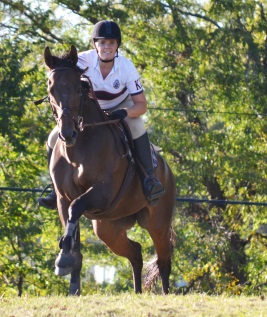Horse Gerontology: studying and caring for the aging horse
 “Wisdom comes with winters” ― Oscar Wilde
“Wisdom comes with winters” ― Oscar Wilde
Geriatric horses (those 15 years and older) comprise almost 30 percent of the equine population. When it comes to aging horses, caretakers must take a different kind of care than when their horses were young.
Equine geriatric medicine and equine gerontology are fields in the study of aging horses. With greater healthcare available, and a stronger understanding of the science of the aging horse, not only are retired horses living longer, but with much greater comfort.
Equine gerontology studies the prevalence of diseases in older horses. Joanne Ireland, BVMS, MRCVS, a research assistant at the University of Liverpool in England, conducted a study that focused on diseases in the aging horse population. Ireland and her colleagues chose 200 geriatric horses (those 15 years and older) at random, and surveyed owners of 1,144 in England and north Wales.
Some key findings: Dental abnormalities in 95.4 percent, Hoof abnormalities in 80 percent, cataracts in 58.5 percent, and skin conditions in 71 percent.
Equus magazine’s “Five ways to help your horse live longer” includes taking care of their teeth, vigilance about parasite control, feeding them well, maximize turnout time, and scheduling regular veterinary visits.
The Center for Equine Health (CEH) at University of California Davis School of Veterinary Medicine writes, “One of the most important ways to help our horses live as long and healthy a life as they are capable of is through regular, preventive medical care. A complete physical exam, including teeth, can reveal subtle changes in an animal’s health and allow for early intervention and possibly an improved outcome. It is well known that early intervention can be the single most important step in managing disease.”
UC Davis’ CEH echoes Equus’ thoughts, and also recommends considering shelter and the environment, considering important ways to manage age-related body changes, and reducing stress in the older horse.
William Woods University has over 150 horses. As many of these get older, equestrian students begin to learn the essentials and responsibilities of older equine care, including great ways to keep older horses active and happy, long after retirement. Last year, two veteran William Woods University horses Glory Road (JJ), 15, and Rampart, 18, were moved to New Mexico to begin exciting careers with the therapeutic program, Healing America’s Heroes, which provides therapy opportunities to veterans and their families.
William Woods University Equestrian Studies students in Fulton graduate having worked with horses of varying ages and having studied the many responsibilities that come with caring for horses of every age both in the classroom and the stable. Students interested in gerontology should talk to their professors or advisers about what current practices and research is being done to care for William Woods University’s senior horses, and how they can get involved.

